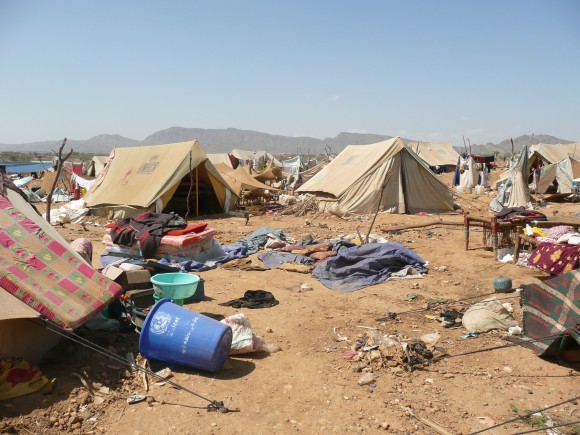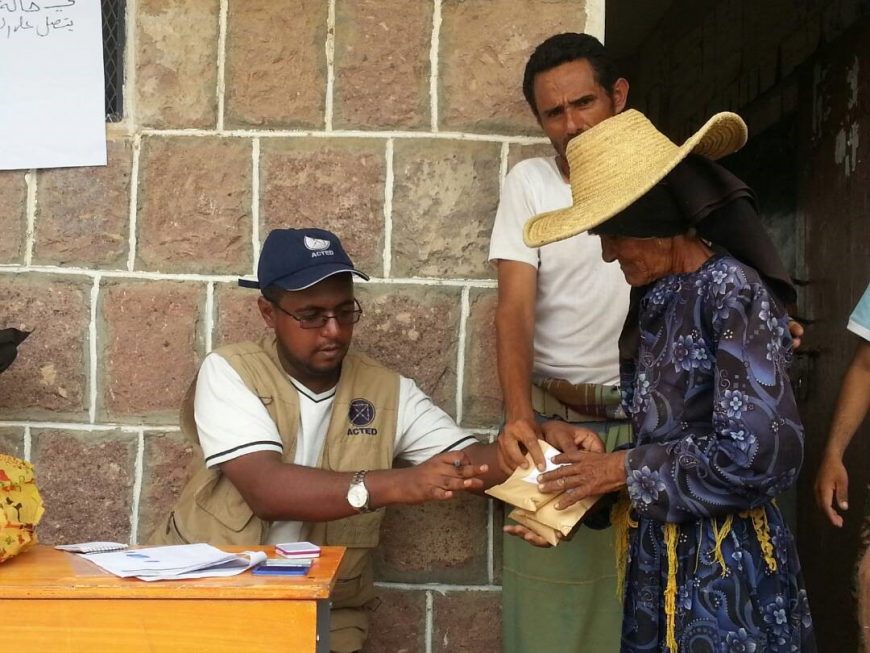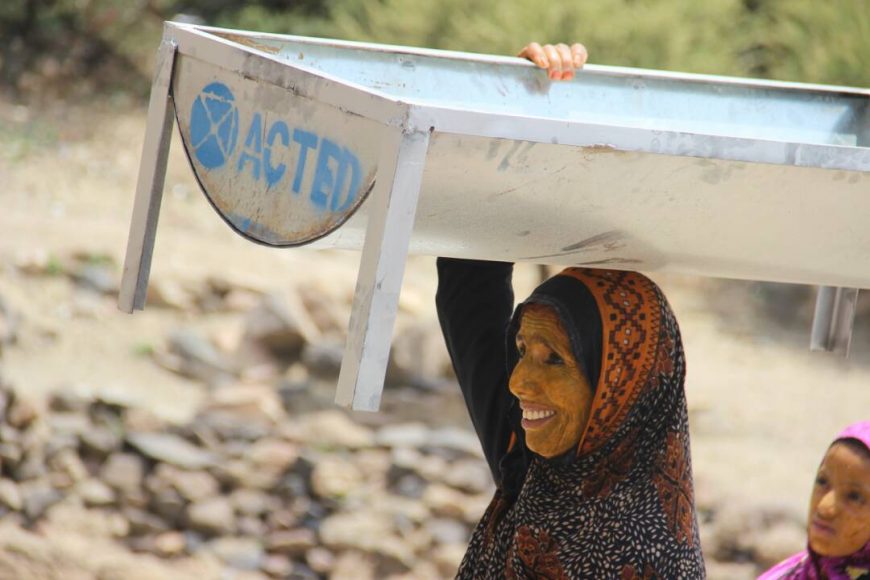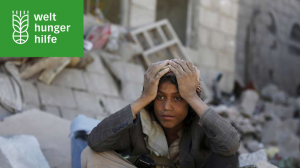Yemenis are experiencing the worst catastrophe in contemporary history. Julian, ACTED country director, reports on the humanitarian situation in an interview in January 2019.
What is the current situation in Yemen? What support does the population need most urgently?
Yemen is the worst humanitarian disaster in contemporary history. The civil war has fallen hard upon the shoulders of an already struggling people. An economic downturn that caused a significant currency devaluation, the collapse of state institutions, the blockading of ports and access routes are just some of the reasons why the humanitarian situation is worsening despite the enormous efforts of aid organisations. The United Nations estimates in its “Overview of Humanitarian Needs for 2019” that more than 24 million people will require humanitarian assistance. This represents 80% of the population and a 10% increase compared to 2018.
The most important needs are in the area of food security. According to a study, more than 15 million people are threatened by famine. Many people can’t rely on having food from one day to the next, hence they limit themselves to only one meal per day, or in some cases, only eat once every few days. In many places in Yemen there is plentiful food available to buy, however people can no longer afford to pay for it. Salaries for civil servants have not been paid for years, or have been paid with great cutbacks.
In addition to hunger, many areas suffer from a lack of clean drinking water. Years of war have destroyed vital infrastructure. At the end of 2017, this led to the largest outbreak of cholera ever recorded. Although the number of new infections is decreasing, the risk of cholera remains high. This is particularly true in remote areas, where the supply of clean drinking water can no longer be guaranteed due to bombardment or a lack of maintenance of wells or water networks.

What current opportunities do the people of Yemen have to access to food and drinking water?
In Yemen, a very large part of the population depends on humanitarian aid as their only source of food. The United Nations World Food Programme (WFP) distributes food rations to nearly ten million people every month. The terrible thing about the situation is that in other crises in the world, people often have their own reserves besides the WFP rations.
In Yemen there are millions of people who, for years have been dependent on food distribution as their only source of nutrition. However, the rations are not designed for this; people who only live on these distributions will have depleted their bodies’ fat reserves within two years. Their physical performance is also worsened by their nutrient-poor diet. This is why we try to give people the opportunity to satisfy other important basic needs by distributing cash.
International NGOs like ACTED are trying to help people meet their basic needs through cash transfer programmes. ACTED and Welthungerhilfe provide financial support to the people of Yemen.

Why do people receive cash instead of food or basic necessities?
As already mentioned, the supply situation in many areas of Yemen is not the biggest problem. Rather, people have no money to afford the necessities. That is one reason why ACTED and Welthungerhilfe distribute money. The money not only allows people to choose their own priorities, but also strengthens the local economy by increasing people’s purchasing power. Besides the advantages for the Yemenis, the distribution of cash also has advantages for us: There are no high transport costs to remote areas and the distribution of cash is faster than the distribution of a bulky emergency aid package. In concrete terms, however, we do not distribute the banknotes as an aid organisation. For security reasons, we work together with the local banks in the villages.
What do you think of the next donor conference? Is this an opportunity for the Yemeni people?
The forthcoming donors’ conference will make it possible to draw the world’s attention back to Yemen. Hopefully governments will be convinced that their commitment in Yemen is now more necessary than ever before. As already mentioned, the number of people threatened by famine will rise to 15 million. Yemen needs international attention to get the parties to the conflict closer to the negotiating table and the civilian population needs the support of the international community to survive. We must not abandon them.

What is it like working in a country marked by war and hunger?
Yemen is a beautiful country, with wonderful proud people. It is sad to see the war changing the country and sowing discord among the groups that until recently lived peacefully side by side. The absurd thing about this situation is that the supermarkets in Sanaa are full and there is no shortage. At the same time the streets are full of people who have to beg to survive.
If you go to the north of the country, the effects of the war are particularly noticeable. On the way from Sanaa to Sadaa every single bridge is destroyed, which necessitates using alternative, less direct transport routes which increases transport costs. During my last visit to our office in Sadaa, we were woken up at night by several air strikes in the immediate vicinity. A terrible situation which unfortunately the local people experience everyday.
Is there an experience or meeting that you will remember particularly well?
The landing at the airport in Sanaa; it can only be approached by aircraft of the United Nations, underlining Yemen’s status as a country at war. The tarmac is lined with destroyed passenger planes, fighter planes and combat helicopters. The departure hall is marked by air strikes and the only people arriving are employees of international aid organisations and the United Nations. The destroyed planes are like a warning to new arrivals and a reminder to the emigrants not to forget Yemen.
Interview available on the welt hunger life website

